Your shopping cart is empty.
Browse our collection or make an appointment.

Sleep vitamins? Yes, really. Research shows that vitamin deficiencies are often one of the biggest causes of disturbed sleep. Perhaps one or more of these vitamins are all that's still holding you back from your restorative sleep.
If it is now 2 a.m. and you are reading this article hoping to find a solution to endless turning and tossing, you are not alone. According to the American Sleep Association, between 50 and 70 million adults suffer from some form of sleep disorder, including insomnia. Even if you've done everything you can do to improve your sleep habits, the problem may still be unresolved. However, chronic sleep deprivation can lead to serious consequences for your health.

Research has shown that sleeping less than seven hours a night doubles your risk of death, and sleeping less than six hours a day even quadruples this risk. In 2015, Americans spent more than $41 billion on sleep aids. "That's more than they spend on other conditions, which makes insomnia the biggest epidemic in the country today," says David Friedman, a doctor of naturopathic medicine, clinical nutritionist and chiropractic neurologist who has had many famous patients, including John Travolta, Jamie Lee Curtis, Val Kilmer and Paul Newman.
However, there may be another cause for the problem other than your stressful lifestyle, your night job or using your smartphone before you go to sleep. "One factor in sleep problems that is often overlooked is a vitamin deficiency," said Arielle Levitan, MD, and Romy Block, MD, authors of the book The Vitamin Solution: Two Doctors Clear the Confusion About Vitamins and Your Health. "We need enough key nutrients for quality sleep."
You probably already know that vitamin C is important for your immune system, but did you know that it's also essential for sleep? "According to a study published in PLOS ONE, people with lower vitamin C levels in their blood had more sleep problems and woke up more often at night," says Shawn Stevenson, BS, FDN, author of SLEEP SMARTER: 21 Essential Strategies to Sleep Your Way to a Better Body, Better Health, and Bigger Success. A proponent of the "food first" method of getting your nutrients in, Stevenson suggests eating peppers, citrus fruits, kiwi, Brussels sprouts and mangoes. You can also add a nice orange-flavored vitamin C drop just to be on the safe side.


Iron helps carry oxygen through your body, so a lack of it can lead to fatigue. Remember how eating spinach made Popeye strong and powerful? Yes indeed, spinach is full of iron. An iron deficiency is also linked to restless legs syndrome, a condition in which you can get an uncomfortable feeling in your legs, and the urge to move your legs when you fall asleep. Dr. Levitan and Dr. Block explain that iron deficiency is common - mainly among women - and they recommend that you consult with your doctor about whether you need a multivitamin that fits your diet, health, history and other factors. There are many good and unexpected foods that can serve as sources of iron that you may be missing from your diet right now, such as hemp seeds and oysters.
This essential mineral supports your body in producing the hormone melatonin. Magnesium also eases the tightening of your muscles, which can prevent restful sleep; it can even relieve tension by producing an amino acid called GABA, which allows the nervous system to relax. Carolyn Dean, MD, ND, Medical Advisory Board member at the Nurtrational Magnesium Association, estimates that more than 75 percent of Americans do not get the recommended daily allowance (RDA) of magnesium. (You do? Here are 10 signs you're not getting enough magnesium). Dr. Dean recommends taking a dose of 600 mg of magnesium in the form of a magnesium citrate powder that you can dissolve in drinking water. In this form, your body can absorb this mineral quickly - drink it throughout the day, with an extra large sip before bed. However, you should not take this supplement if you suffer from kidney failure or an extremely slow heartbeat; instead, you can choose foods with a higher magnesium content, such as green leafy vegetables, pumpkin or sesame seeds, spirulina and Brazil nuts.


Vitamin B12 keeps the body's nerve and blood cells healthy, and helps the body create energy. Dr. Levitan and Dr. Block explain that they see many patients - mainly vegans, vegetarians and older adults - who are deficient in vitamin B12. "Low vitamin B12 levels can cause neurological symptoms such as fatigue, sleep disturbances, numbness and tingling, and mood swings," they say. They recommend taking 250 to 500 mg daily to reduce deficiency problems. Side effects of too much B12 can include rashes, abdominal pain and dizziness.
L-tryptophan is an essential amino acid - your body uses amino acids to build proteins. You need tryptophan to make niacin, a B vitamin that provides seratonin, a neurotransmitter that helps you with healthy sleep patterns. Because your body cannot make tryptophan itself, it must come from your diet, Stevenson says (e.g., eggs, poultry, chia seeds and sweet potatoes) or in the form of a supplement. But what about the belief that tryptophan in turkey makes you feel so tired after Thanksgiving dinner? Sorry, but this is not because of the turkey 😉 In fact, you get just as much tryptophan if you eat chicken or cheddar cheese. According to information from Healthwise through the University of Michigan Health Department, 1 to 2 grams of tryptophan before bed can help with sleep disturbances and insomnia.
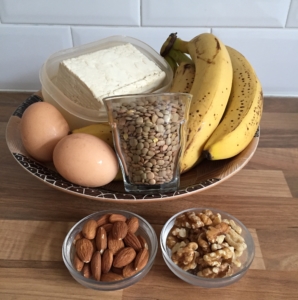

At night, the pineal gland in your brain produces a hormone called melatonin, also known as "the hormone of darkness." Melatonin regulates your body's biological clock, including the timing of hormone secretion. Numerous studies show that taking a melatonin supplement can help you get your beauty sleep. Dr. Friedman recommends starting with a low dose of 1 mg, saying it's important to take it at the right time for proper sleep patterns. If you fall asleep quickly but have difficulty staying asleep, you can take a formula 30 minutes before you go to sleep that releases the hormones in a controlled manner in your body. A better option is the fast-absorbing sublingual or liquid form, which you take an hour before you go to bed. If you wake up at night, it's better not to take melatonin to fall back asleep because it can disrupt your internal clock. Instead, you can take a night snack such as sour cherries, walnuts, ginger root, asparagus or pineapple, which contain small amounts of melatonin.
Vitamin D plays many roles in the body - from helping with calcium absorption to contributing to immunity. However, Dr. Levitan and Dr. Block also point to research showing a link between low vitamin D levels and poor sleep quality. For example, a 2017 study on Nutrients showed a significant link between low levels of vitamin D and sleep disturbances. Another study observed sleep improvement when vitamin D supplements were administered. Because the body can produce this fat-soluble vitamin only when sunlight hits the skin, this supplement form is common. The ADI in the U.S. is between 800 and 2,000 IU of vitamin D3, but Dr. Levitan and Dr. Block have many patients who need higher doses to maintain normal serum levels. It is important to talk to your doctor about your individual nutrient requirements, as excess vitamin D can lead to constipation, nausea, vomiting and kidney stones.
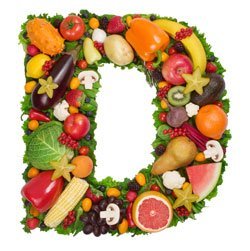
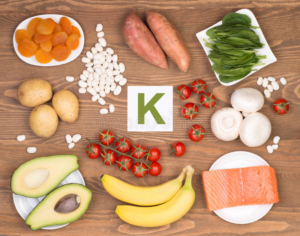
This mineral has been found to be helpful in people who have trouble staying asleep, Stevenson said in a study in the journal Sleep. Additional studies have shown a potential link between potassium and the deepest sleep of your sleep cycle. However, this does not mean you have to eat bananas daily; you can also choose avocados, crimini mushrooms, salmon, green leafy vegetables and beans to ensure you get enough potassium.
Calcium is another mineral that directly affects our sleep. Stevenson cites a study in The Journal of Sleep that showed a calcium deficiency can disrupt your dream cycle, also known as rapid eye movement (REM). When the researchers replenished calcium to normal levels, the volunteers regained their normal REM sleep. You can get this mineral from dairy products, or eat more products such as kale, mustard, cabbage, sardines and sesame seeds to increase your calcium intake. Adults aged 19 to 50 consume 1,000 mg of calcium daily, while those aged 51 or older should get 1,200 mg.
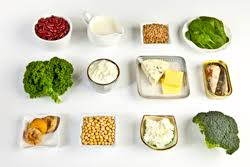
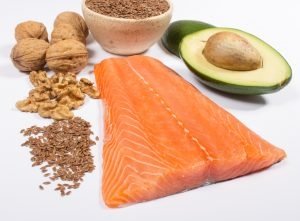
Omega 3s are healthy fats, including eicosapentaenoic acid (EPA), docosahexaenoic acid (DHA), and alpha-linoleic acid (ALA). A University of Oxford study has shown a link between higher omega-3 DHA levels - found in algae and sea foods - and improved sleep. The lead author, Professor Paul Montgomery of Oxford University said, "The different substances produced in your body from omega-3 fatty acids are known to play important roles in the regulation of your sleep. For example, a reduced ratio of DHA is associated with reduced melatonin levels."